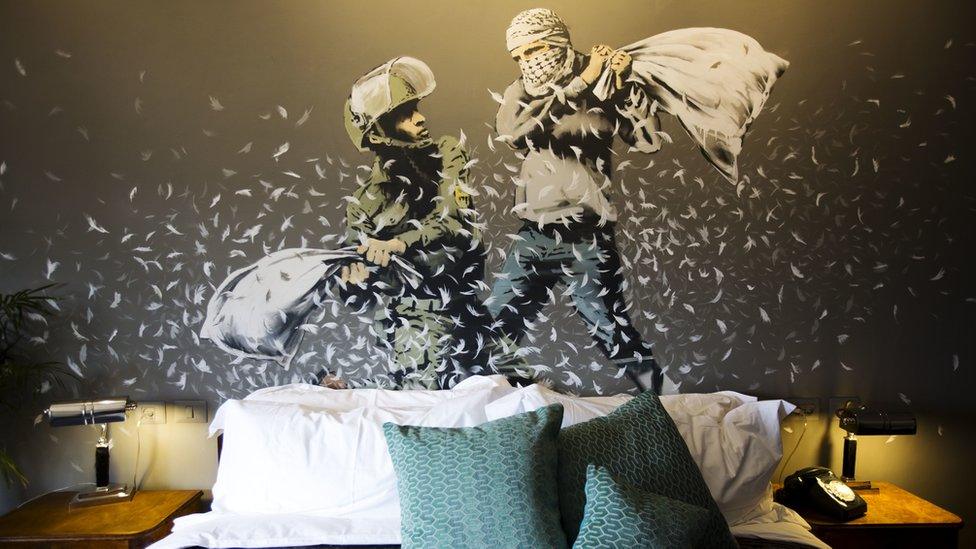'Banksy' cardboard protest placard up for auction
- Published
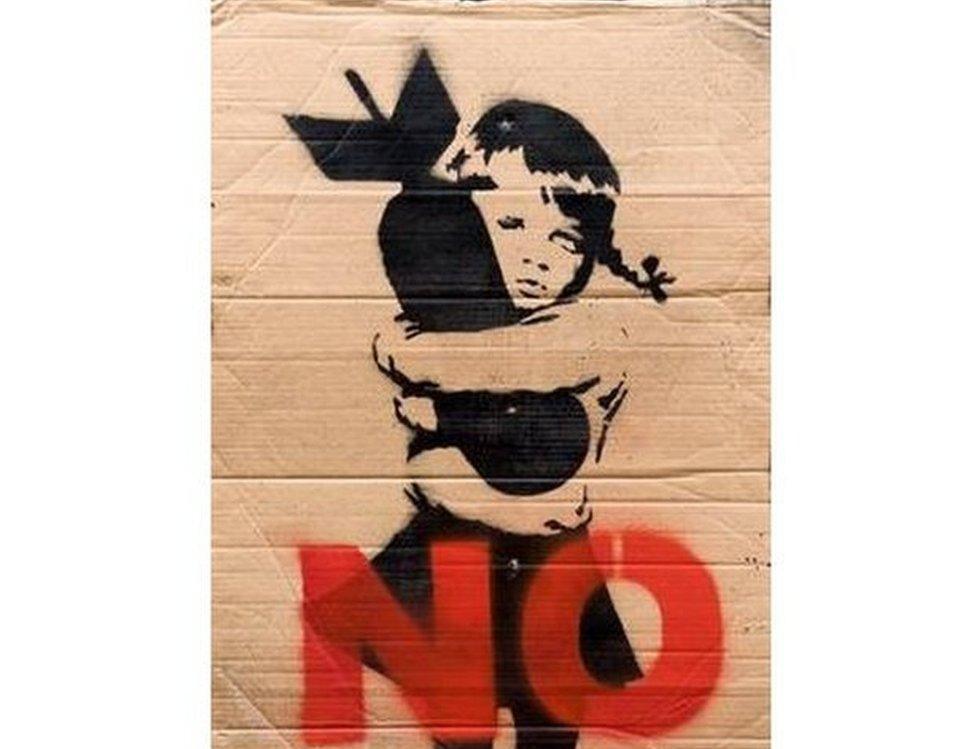
The spray-painted cardboard artwork was used in the 2003 anti-war protests in London
A flimsy cardboard anti-war placard claimed to be by the street artist Banksy is to go under the hammer.
The piece - depicting a young girl clutching a bomb - is said to be one of dozens made for a protest against the Iraq War in 2003.
It had been kept in a flat by a protester until 2016, when it was sold to its current owner.
The auction house in Newmarket expects the placard to fetch up to £15,000 on Wednesday.
Banksy created a number of different signs for the 2003 London protest, external but few originals have survived because they were either discarded in the street or confiscated by the Metropolitan Police.
Will Axon, senior auctioneer at Rowley's said: "It is one of those rare occasions when you can genuinely call a picture iconic, the fact that this image is on a rather fragile piece of creased cardboard just adds to it.
"Banksy adeptly captured the anti-war sentiment in this image.
"Although his work has transcended from the street it hasn't lost its edge - his images are powerful and memorable - his work manages to do what all great artwork should - he makes us think."
Pest Control, which is responsible for authenticating works by Banksy, is quoted on the auction listing as saying it could not issue a certificate of authentication for work deemed as "street-art".
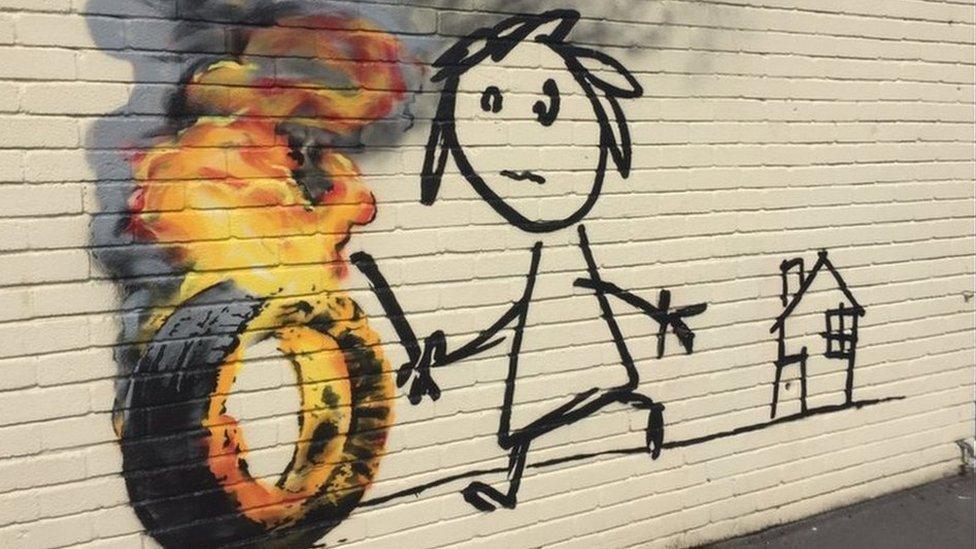
Banksy famously painted this mural on Bridge Farm Primary School in Bristol
A collection of Banksy prints fetched £435,000 when they were auctioned in London in January 2015.
Banksy began his career as a graffiti artist in Bristol but has since gained global notoriety for his unique, stencilled artwork on public walls and facades.
His identity has always remained a tightly lipped secret.
His work - including entire walls of buildings - can command huge resale figures.
Last June, Banksy painted a mural on the wall of a Bristol primary as a 'thank you' for naming a school house after him.
- Published8 May 2017
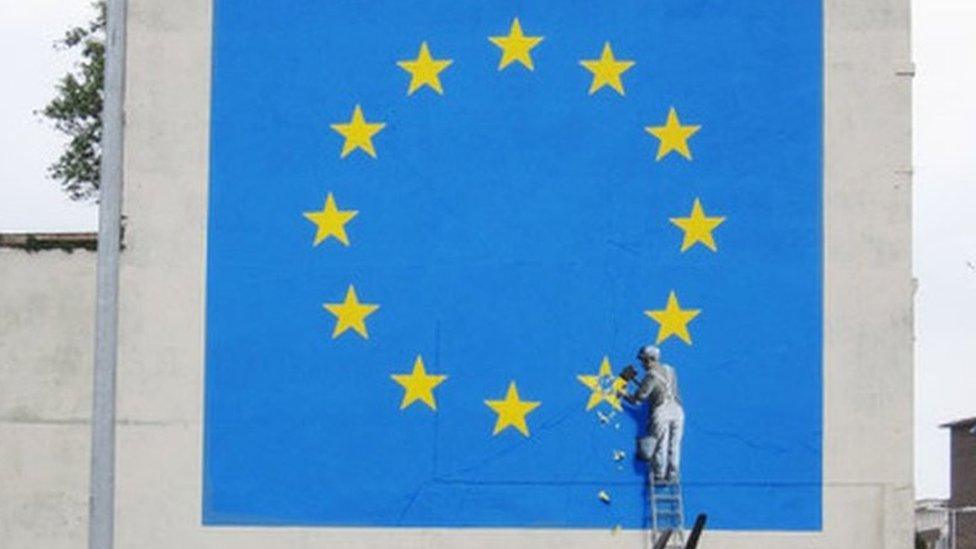
- Published6 June 2016
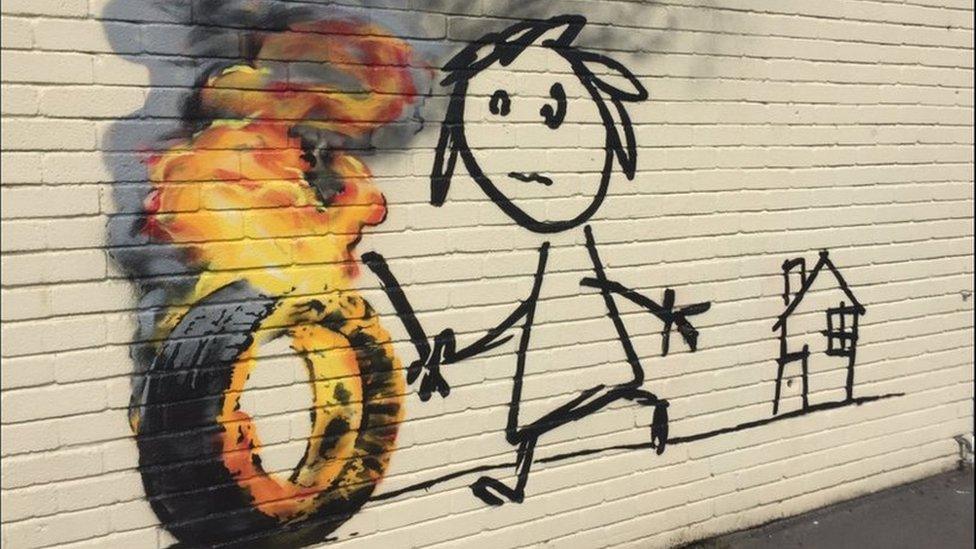
- Published29 January 2015
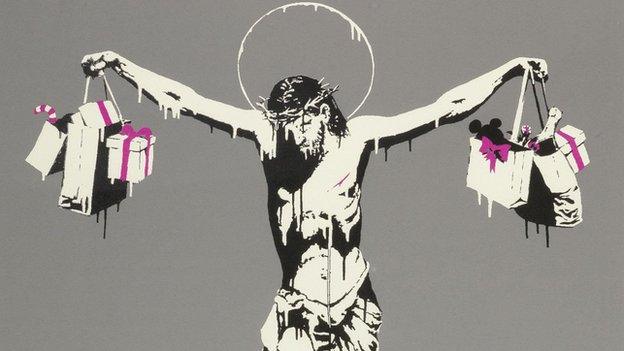
- Published21 August 2016
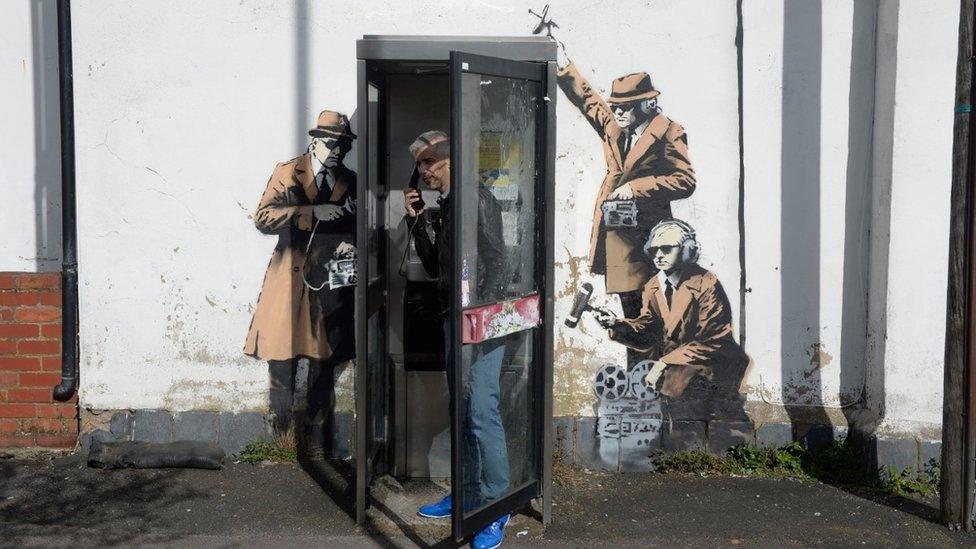
- Published3 March 2017
